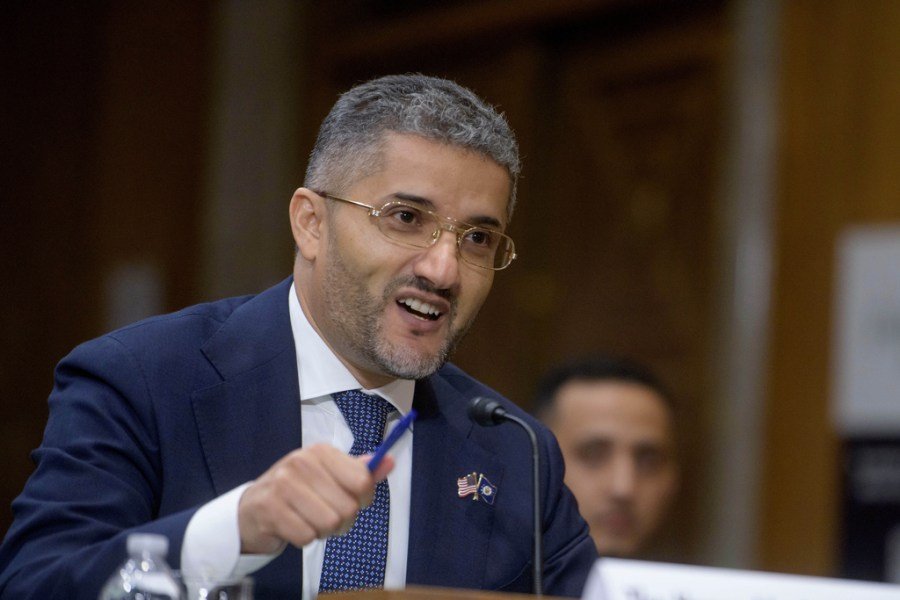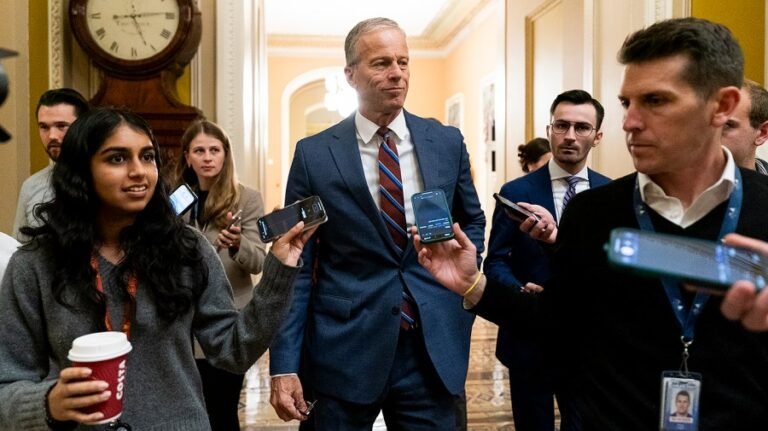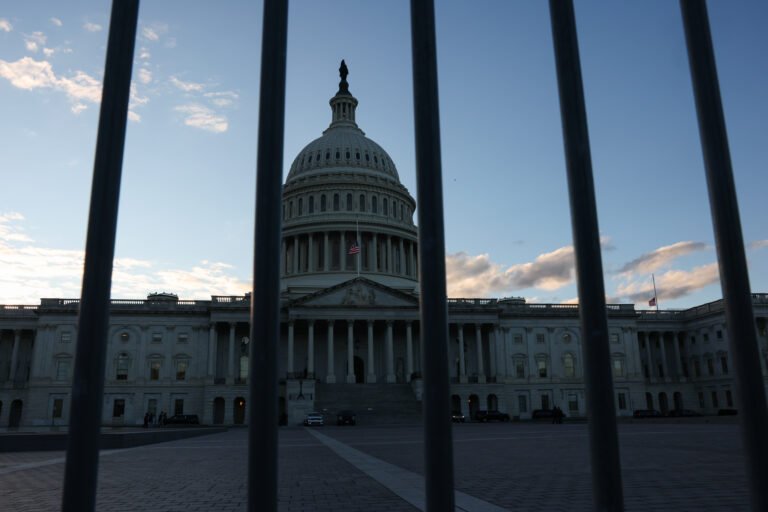
It has been nine months since President Trump was sworn in for a second time, and confirmation hearings are still keeping Capitol Hill busy. Currently, 120 or so nominees are in the process of being considered by the Senate.
The positions being filled at this stage are generally second-rank at best — under secretaries, assistant secretaries, commissioners — but they still fall within the scope of the Senate’s advice and consent powers.
One person awaiting a decision is Amer Ghalib, tapped by Trump as U.S. ambassador to Kuwait. Nominated eight months ago, he is now thought likely to receive an unfavorable recommendation from the Senate Foreign Relations Committee, if his name is not first withdrawn.
The Yemen-born Ghalib was previously mayor of Hamtramck, an enclave of Detroit famous for becoming, in 2013, the first Muslim-majority city in America. He was elected as a Democrat in 2021, joining an all-Muslim six-member city council, He rapidly became known for socially conservative and pro-Trump views. He banned the flying of the gay pride flag on public flagpoles. He has a history of making, or seemingly endorsing, racist and antisemitic remarks on social media.
For Trump, what mattered about Ghalib was his loyal support during last year’s election. The mayor endorsed Trump after they met in September. He went on to appear with him at a number of public events. His reward was an ambassadorship.
If Trump can overlook challenging opinions and policy positions, the Foreign Relations Committee is more reluctant. Ghalib appeared in October and was questioned about allegations including antisemitic remarks, support for Houthi terrorist attacks on Israel and describing the Muslim Brotherhood as an “inspiration.” Sens. Ted Cruz (R-Texas) and Dave McCormick (R-Pa.) have already indicated they will vote against the nomination, and Sen. John Curtis (R-Utah) is also believed to be unhappy about his nomination. If all Democrats on the committee oppose him, Ghalib is already out of the running.
Some say this increased level of skepticism toward Trump nominees from his own side is evidence of congressional Republicans asserting their independence from a White House which demands absolute obedience and capitulation.
Last month, Joel Rayburn’s nomination as assistant secretary of State for Near Eastern Affairs was withdrawn after he clashed with Sen. Rand Paul (R-Ky.). Paul Ingrassia’s candidacy for Special Counsel was abandoned amid allegations he had sent racist and pro-Nazi text messages.
Are these flickers of life from a mainstream Republican Party seeking to create distance between itself and the president? I wrote in April 2024 about how Trump was gathering the reins of power in the hands of various family members, and how he dominates the party in a way he did not during his first presidency. Trump 2.0 has virtually none of the first Trump term’s personnel counterweights, such as Defense Secretary Jim Mattis, director of national intelligence Dan Coats and White House chief of staff John Kelly.
At the same time, Republicans cannot ignore that Trump’s approval ratings have fallen significantly. Any elected Republican will see these figures and wince.
Trump will never have to submit himself to the electorate again, so he can afford to remain in denial about polling data. But it is now less than a year until the midterm elections. The recent strong showing by Democrats, to take the governorships of New Jersey and Virginia and the mayoralty of New York City, will be cause for alarm. If Republicans want a future after Trump, especially while the president is this unpopular, it must be more than his unquestioning instrument and echo chamber.
It will take a lot more than rejecting obviously unsuitable candidates for middleweight offices. Senate Republicans in particular have a glaring credibility gap. All but one — Sen. Mitch McConnell (R-Ky.) — voted to confirm Tulsi Gabbard as director of national intelligence and Robert F. Kennedy Jr. as secretary of Health and Human Services. They gave unanimous support to Kristi Noem as secretary of Homeland Security and Russell Vought as director of the Office of Management and Budget.
Even the aggressive, simplistic, machismo-addicted Pete Hegseth was opposed by only three Republicans. Vice President JD Vance was forced to go to the Senate and exercise a tie-breaking 51st vote to get Hegseth across the line as secretary of Defense.
Too often, Republicans have meekly nodded through fringe candidates, hyper-partisans and nominees who are glaringly unqualified or unfit. It is one element among many of the abject fealty Trump expects from his party, along with the article of faith that the 2020 presidential election was fraudulent.
Amer Ghalib may never become ambassador to Kuwait. But his rejection will not prove that Republicans in Washington have agency independent of Trump. That will require much more.
Eliot Wilson is a writer, historian and senior fellow for national security at the Coalition for Global Prosperity. He is also a contributing editor for Defence on the Brink.


